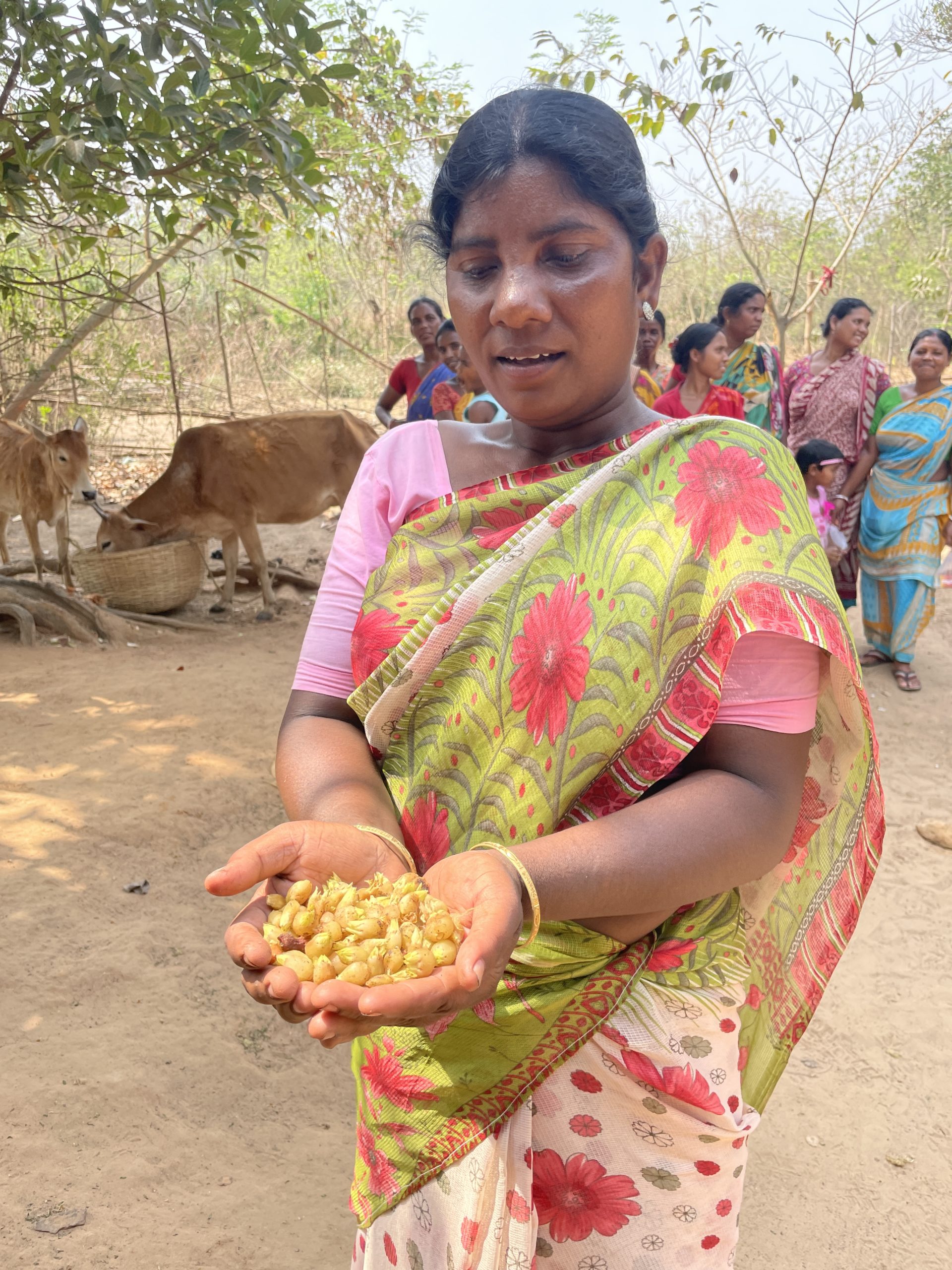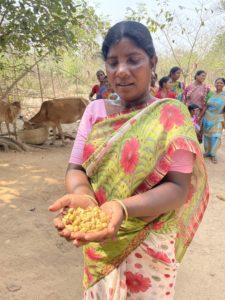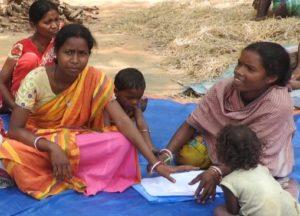Kalaboti Hembrom, a widow and single mother from Dhulkidanga, Jhargram used to depend on mono-cropped rainfed farming and collection of NTFPs like Mahua (Madhuca longifolia) for their sustenance and livelihood generation. Kalaboti belongs to the scheduled tribe community. Kalabati is facing the burnt of climate change and her livelihood is getting badly affected through erratic rainfall, late onset of monsoon, drying up of water sources and soil moisture content all of which have a negative impact on the productivity and yield of her rainfed farming. Even the productivity of seasonal fruits like mangoes and jackfruits is decreasing. According to Kolaboti the jackfruit tree at her house which produced sizeable produce has of late started turning in fruits that are smaller in size.
Kalabati after receiving training from IBRAD through Blended Digital Learning has formed a —————— with ——– members in ———–. The group for the first time had received training on the preparation of vermicompost and had established a demonstration vermipit in the village in the month of———-. With proper management, the production of vermicompost has begun. The group has harvested 20kgs of vermicopost from the pit which they are going to use in their nutrition kitchen garden. The villagers are also taking initiative for establishing more vermipits as a source of alternative livelihood to combat the challenges of climate change.
The story from Dhulkidanga village shows how training through blended digital learning along with demonstration and hands-on training can develop the knowledge and skills within a shortest possible time and change the behavior of the people for adaption of new technologies.






